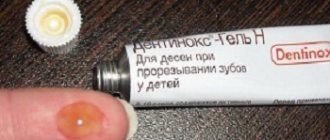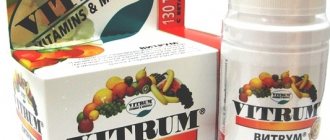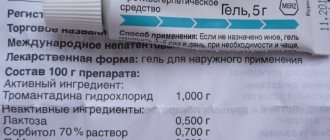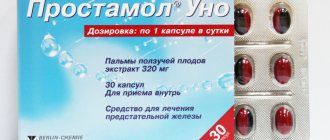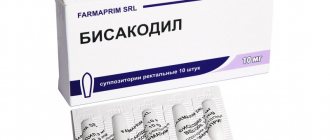Treatment of almost any disease comes down to prescribing basic drugs to destroy the causative agent of the pathology and accompanying medications designed to restore the disorders caused by the disease. Likewise, treatment of hepatitis C includes taking targeted drugs in mandatory combination with hepatoprotectors. Among the wide variety of medications for liver restoration, the drug Hepa-Merz stands out. A special feature of the medicine is its composition, represented by a combination of amino acids.
These substances are the natural physiological link in the metabolic processes of nitrogenous compounds. After all, disturbances in the breakdown of ammonia and, as a consequence, the formation of substances toxic to hepatocytes, are considered one of the main links in the pathogenesis of cirrhosis and other irreversible functional disorders. In addition, the amino acid component of the drug is a natural compound for the body, which minimizes the risk of adverse reactions and complications.
But the indications for the use of Hepa-Merz are not limited to complex treatment of hepatitis C. Due to its high safety profile, hepatologists consider the drug the best way to restore the liver. The choice of dosage forms also contributes to expanding the range of applications. So, in case of a serious condition of the patient, the drug is prescribed for injection use; in other cases, oral administration is suitable.
Release form and composition
Dosage forms of the drug:
- Granules for preparing a solution for oral administration: a mixture of white and orange granules (5 g in sachets, 10 or 30 sachets in a cardboard box);
- Concentrate for preparing a solution for infusion: transparent liquid of light yellow color (10 ml in dark glass ampoules, 10 ampoules in a cardboard box).
Active ingredient: L-ornithine L-aspartate:
- 1 sachet – 3 g;
- 1 ampoule – 5 g.
Excipients:
- Granules: orange flavor, anhydrous citric acid, sodium saccharinate (sodium saccharin), lemon flavor, sodium cyclamate, polyvinylpyrrolidone (povidone), sunset yellow dye, fructose (levulose);
- Concentrate: water for injection.
Analogs
The Russian RLS (registry of medicines) contains dozens of names of drugs from the group of hepatoprotectors. But generics of the original Hepa-Merz (substitutes with the same composition) can be called:
- Larnamin (PharmAK, Ukraine);
- Ornilatex (ZAO Sotex, Russia);
- Ornithine (FP Obolenskoe, Russia);
- Ornithine Canon (Canonpharma, Russia).
The listed drugs are cheaper analogues of Hepa-Merz. But it is worth considering that substitutes may differ in the quantitative ratio of active ingredients.
How does it differ from analogues
Many patients are interested in whether Heptral or Hepa-Merz is better, so the main questions regarding the difference in the principle of action of different hepatoprotectors are given in the table.
| Name of the drug that affects the liver | Differences from Hepa-Merz |
| Ursosan | Contains ursodeoxycholic acid. Usually prescribed for pathologies of the liver, gallbladder and biliary tract associated with the formation of stones in the cavity of the gallbladder |
| Phosphogliv | Contains a mixture of phospholipids and glycyrrhizic acid. Accelerates the restoration of cell membranes of hepatocytes, has virtually no effect on the exchange of proteins and nitrogenous compounds |
| Essentiale Forte | The drug contains phospholipids, which serve as “building materials” for the membrane of liver cells |
| Heptral | Just like Hepa-Merz contains amino acids. But they predominantly affect the lipid profile. Therefore, the main indication for the use of Heptral is fatty liver. |
When choosing a replacement for Hepa-Merz, you should consult your doctor.
Pharmacological properties
Pharmacodynamics
Hepa-Merz is characterized by a detoxifying effect, reducing the increased concentration of ammonia in the body. In particular, this condition occurs in liver diseases. L-ornithine-L-aspartate is involved in the ornithine Krebs urea cycle (promotes activation of the cycle by increasing the activity of liver cell enzymes - carbamoyl-phosphate synthetase and ornithine-carbamoyltransferase).
The drug improves the production of growth hormone and insulin, normalizes protein metabolism in diseases that require parenteral nutrition. The active component Hepa-Merz reduces pain, dyspeptic and asthenic syndromes, and also ensures a reduction in increased body weight (with steatohepatitis and steatosis).
Pharmacokinetics
L-ornithine-L-aspartate undergoes rapid dissociation into aspartate and ornithine. The drug begins to act within 15-25 minutes after administration and has a short half-life. The active substance is excreted in the urine during the urea formation cycle.
Manufacturer
The manufacturer of the drug Hepa-Merz is the German pharmaceutical company Merz Pharma, headquartered in Frankfurt am Main. The corporation's activities are aimed at producing prescription and over-the-counter medications (including for external use), widely used in dermatology, neurology, and general therapeutic practice for the relief of metabolic disorders. All medicines produced by Merz are distinguished by a precisely combined, unique and safe composition.
The history of the corporation now spans more than 100 years. Annual turnover exceeds 1 billion dollars. Several years ago, a gradual expansion of the corporation’s work throughout the United States began.
Instructions for use of Hepa-Merz: method and dosage
- The granules are taken orally, after meals, dissolved in liquid - 1 sachet per 200 ml, 2-3 times a day;
- The concentrate is administered intravenously, dissolved in 500 ml of infusion solution up to 40 ml (4 ampoules) per day. In the case of hepatic encephalopathy (depending on the severity of the condition), up to 80 ml (8 ampoules) per day is administered intravenously. The doctor prescribes dosage and treatment period based on clinical indications individually. The maximum permissible infusion rate is 5 g per hour. It is recommended to dissolve no more than 60 ml (6 ampoules) of the drug in 500 ml of infusion solution.
Reviews from doctors
Igor Ivanovich Prikhodin, hepatologist
Hepa-Merz is not a cheap drug, so patients are often interested in reviews from patients and other doctors regarding aspects of its use. But my opinion is clear - this is the optimal hepatoprotector for complex therapy for hepatitis C. When using the drug, the likelihood of achieving SVR is much higher, and the risk of relapse is reduced. Unlike some hepatoprotectors and vitamins, Hepa-Merz is not a dietary supplement, but a medicine, therefore its quality and terms of sale are regulated in accordance with strict legislation.
Instructions
The drug has an insert that contains information about indications, side effects, contraindications, overdose, as well as the required dosage.
In addition, the article contains data on possible analogues, as well as the approximate cost of the drug.
It is imperative that you familiarize yourself with this information to avoid any unpleasant consequences in the future.
pharmachologic effect
The effectiveness of Hepa-Merz is due to the content of ornithine in the medication. The substance acts at the cellular level, improves the protective functions of the liver and restores impaired metabolic processes. Additionally, the drug takes part in urea formation and normalizes the functional state of the biliary system. According to its pharmacological properties, Hepa-Merz belongs to the category of hypoammonemic drugs.
Pharmacological properties:
lower ammonia levels;- activation of the process of insulin production;
- reduction in the intensity of asthenic syndrome;
- restoration of the urea metabolic cycle;
- cleansing the liver of toxic and harmful compounds;
- detoxifying effect on the liver;
- normalization of the chemical composition of urea;
- increasing the protective functions of the liver;
- relief of dyspeptic syndromes;
- restoration of the activity of enzyme components of cells;
- improving the process of somatotropic hormone production.
Indications
This remedy is recommended for use in the presence of conditions such as:
- Liver encephalopathy, incl. as part of complex treatment for impaired consciousness, for example, coma;
- Liver diseases that are accompanied by hyperammonemia (acute and chronic form);
- Hepatitis, liver cirrhosis.
In addition, this medicine can be prescribed to treat the liver with frequent use of alcohol, drugs, and overeating.
The product is also used as an additive to drugs for parenteral nutrition of patients who suffer from protein deficiency.
Method of administration
The drug Hepa-Merz in the form of granules is taken orally. To take, the contents of 1-2 sachets should be dissolved in liquid (1 glass). The prepared solution should be given to the patient 3 times a day after he eats.
To take the medicine intravenously, Hepa-Merz must be dissolved in 500 ml of solution for injection. The average dosage is 4 ampoules or 20 g of medicine. If the patient has a serious condition, for example, coma, then the medicine must be administered in a dosage of up to 8 ampoules per day.
If the drug Hepa-Merz is administered intravenously, then it is necessary to control the rate of administration of the drug, because it should not exceed 5 mg/hour. In this case, the medicine can be dissolved in Ringer's solution or glucose. In each individual case, therapy is selected individually, based on the patient’s condition, as well as the severity of the disease.
If the patient has serious problems with the kidneys, then the drug should be discontinued. For elderly patients, no dosage adjustment is required.
Release
You can find several forms of drug release:
- Powder with granules. They are orange and white in color;
- Solution for preparation of injections. It is a light yellow liquid.
| Release form | Compound |
| Powder | ornithine, as well as sodium cyclamate, fructose, dye (yellow and sunset), flavor (lemon, orange), anhydrous acid, sodium saccharin, povidone (polyvinylpyrrolidone). |
| Solution | ornithine, as well as water for injection. |
Drug interactions
If you were taking any other medications before starting treatment with Hepa-Merz, you must notify your doctor about this. This must be done so that he can adjust the dosage or select another remedy. The solution for preparing infusions is not recommended to be combined with antibiotics, vincamine, disepam, vitamin K, or sodium tipental.
Pharmacodynamics and pharmacokinetics
The active compound ornithine aspartate , contained in Hepa-Merz, is involved in the biosynthesis of urea from ammonia (ornithine Krebs cycle) , and also promotes the production of growth hormone and insulin , accelerates protein metabolism , improves liver function ( detoxification effect ) and reduces the level of ammonia in the blood.
The drug is quickly absorbed in the stomach and enters the blood through the intestinal epithelium and is excreted from the body in the urine.
Clinical trials of efficacy and safety
Clinical studies conducted in Germany demonstrated quite expected results. All subjects noted objective and subjective improvement in well-being. Compared to the placebo group, the time to achieve a virological response during antiviral therapy for hepatitis C was significantly reduced, and the main parameters of liver tests returned to normal.
But in the course of research, new effects of Hepa-Merz were discovered, which are explained by the normalization of nitrogen and protein metabolism, and the elimination of excess ammonia. The drug reliably improves blood flow in the myocardium, tissues surrounding the pancreas, muscles and, with a high degree of probability, other internal organs. Due to the normalization of NO content in the vascular endothelium, the drug also has an anti-atherosclerotic effect.
The tone of cerebral vessels is reduced, platelet aggregation processes and, as a result, the formation of atherosclerotic plaques and blood clots are prevented. This effect made it possible to recommend Hepa-Merz as part of complex therapy for various multiple organ disorders caused by impaired filtration capacity of the liver. It is noteworthy that the therapeutic effect of the drug develops even when using the minimum recommended doses.
special instructions
Before direct intravenous administration of the Hepa-Merz solution, you should not dissolve more than 6 ampoules (500 ml of solution for infusion) of the drug at a time. In order to eliminate vomiting and nausea , the rate of administration of the drug should be optimized.
While using the drug for the treatment of hepatic encephalopathy , patients are advised to refrain from driving vehicles, and also not to work with potentially dangerous mechanisms and not to engage in activities that require increased concentration, and also a quick mental reaction.
Hepa-Merz price, where to buy
The cost of Gepamerz varies depending on the region and the dosage form. This drug can be purchased in pharmacies without a doctor's prescription.
The average price of Gepamerz in ampoules (pack of 10 pieces, 10 ml each) is 3,000 rubles.
A package of granulate (10 sachets, 5 mg each) will cost approximately 650-700 rubles.
- Online pharmacies in RussiaRussia
- Online pharmacies in UkraineUkraine
- Online pharmacies in KazakhstanKazakhstan
ZdravCity
- Hepa-Merz granules for preparations.
solution for internal approx. 3g/5g 10 pcs.Merz 1015 rub. order - Hepa-Merz conc. for cooking solution for inf. 500 mg/ml 10 ml 10 pcs. Merz Pharma GmbH and Co. KGaA./B. Braun Melsungen AG
RUB 2,288 order
Pharmacy Dialogue
- Hepa-Merz sachets No. 10MERZ Pharma
RUR 827 order
- Hepa-Merz (amp. 5g/10ml No. 10)MERZ Pharma
RUB 2,522 order
- Hepa-Merz sachets No. 30MERZ Pharma
RUB 1,865 order
show more
Pharmacy24
- Hepa-Merz 10 ml No. 10 concentrate for infusion Merz Pharma GmbH and Co.KGaA, Nimechchina
3247 UAH.order - Hepa-Merz 5 g N30 granules Merz Pharma GmbH and Co.KGaA, Nimechchina
1677 UAH order
PaniPharmacy
- Hepa-Merz infusion Hepa-Merz 5g ampoules 10ml No. 10 Germany, Merz Pharma
3375 UAH. order
- Hepa-Merz Hepa-Merz granules packages No. 30 Germany, Merz Pharma
1730 UAH. order
show more
Indications for use of Gepamerza
Indications for the use of Hepa-Merz are:
- liver diseases , including chronic or acute forms, accompanied by hyperammonemia ;
- hepatic encephalopathy.
As part of complex therapy, the drug is used to treat disorders of consciousness ( coma or precoma ). In addition, Hepa-Merz acts as a corrective additive in the therapeutic diet of patients with protein deficiency .
The drug can be used to relieve intoxication from alcohol poisoning .
